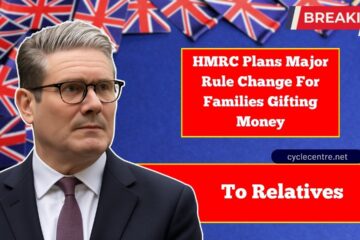Between January 8, 2024, and March 31, 2025, the Department for Work and Pensions (DWP) and HM Revenue and Customs (HMRC) carried out a joint review, uncovering 12,379 underpayments in State Pension—primarily impacting women whose National Insurance (NI) records had incorrect or missing information.
The issue stems from Home Responsibilities Protection (HRP), a scheme designed to help carers and parents retain State Pension eligibility. HRP was discontinued in 2010, replaced by NI credits, but many records remain incomplete.
£104 Million Already Paid Out in Arrears
To date, approximately £104 million in backdated pension payments has been issued. On average, affected individuals have received £8,377 each.
However, many more may still be due compensation, especially those who have not responded to HMRC’s outreach efforts.
Summary of Key Figures
| Category | Detail |
|---|---|
| Time Period Reviewed | Jan 8, 2024 – Mar 31, 2025 |
| Total Underpayments Identified | 12,379 |
| Total Arrears Paid | £104 million |
| Average Arrears per Person | £8,377 |
| Number of Letters Sent by HMRC | 370,000+ (mostly to women) |
Why Many Women Missed Out
Despite HMRC mailing over 370,000 letters, DWP research shows that many recipients never responded or completed the application to correct their records. Common reasons included:
- Confusion over complex terminology like HRP
- Fear of scams, mistaking the letter for fraudulent communication
- Difficulties using digital forms for claims
Retirement expert Helen Morrissey stressed the need for clearer guidance and assistance, especially for those less familiar with online platforms.
What Is Home Responsibilities Protection (HRP)?
HRP aimed to protect the State Pension rights of individuals who were:
- Receiving Child Benefit for children under 16
- Caring for someone with a disability or long-term illness
- Acting as foster carers or kinship carers in Scotland
Automatic Qualification for HRP
You likely automatically received HRP if:
- You claimed Child Benefit in your name and provided your NI number
- You received Income Support and were excused from registering for work due to caregiving
Eligibility to Apply for HRP Now
You can still apply for HRP for full tax years between 1978 and 2010 if:
- You received Child Benefit for a child under 16
- Your partner claimed Child Benefit, but you were also providing care
- You cared for someone receiving Attendance Allowance, Disability Living Allowance, or Constant Attendance Allowance
- You were a foster carer or a kinship carer in Scotland (2003–2010)
Restrictions and Special Cases
- Married women or widows who paid reduced NI contributions (Class 1 or Class 2) do not qualify for HRP for that tax year.
- If you reached State Pension age before April 6, 2008, you cannot transfer HRP from a partner.
- However, those who reached pension age after April 6, 2010, had their HRP automatically converted into NI credits, capped at 22 qualifying years.
Caring for a Disabled Person? You May Qualify
You could claim HRP for years spent caring (35+ hours/week) for someone receiving specific disability benefits. To qualify:
- The cared-for individual must have received benefits like DLA, Attendance Allowance, or Constant Attendance Allowance
- The benefits must have been paid for 48 weeks of a tax year (post-1988) or every week (pre-1988)
How to Take Action and Apply
The government has developed an online HRP tool to simplify the application process. If you think you may have missed out:
- Visit the official government page to check your NI record
- Use the HRP eligibility tool to review possible gaps
- Apply online or contact the Pension Service for help
Morrissey advises checking your record as early as possible—any missing credits may be backdated or corrected with voluntary contributions to maximize your future State Pension.
Tens of thousands of women may be owed thousands in backdated State Pension due to incomplete NI records and missing HRP data. While over £104 million has been paid, many eligible recipients remain unaware or uncertain about their rights.
With the DWP and HMRC still urging action, it’s essential to review your State Pension records, understand your eligibility for HRP, and file a correction if needed. Awareness, clarity, and action are key to ensuring you’re not missing out on what you’ve rightfully earned.
FAQs
Yes, you can still apply for HRP even if you’re over State Pension age. While you may not get a backdated increase, it can correct your NI record moving forward.
Check your National Insurance record online via the government portal. If you suspect a gap from 1978 to 2010 during qualifying periods (like caregiving or Child Benefit), you may have missed HRP.
No. Applying for HRP cannot reduce your pension. In fact, it may increase it by filling in qualifying years in your NI record.



0 Comments